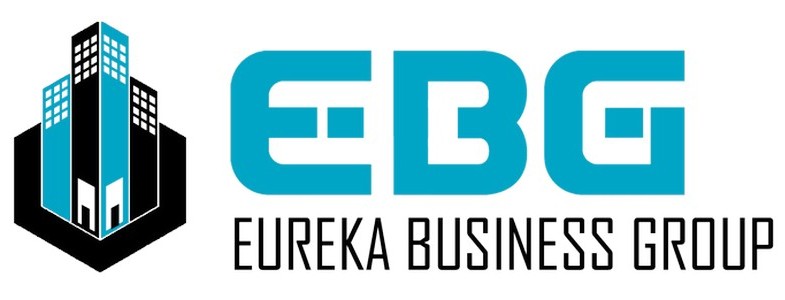- Home
- Retail
- Retail Investors Resources
- Understanding Triple Net Leases in Retail Commercial Real Estate!
Understanding Triple Net Leases in Retail Commercial Real Estate!
When diving into the world of retail commercial real estate, one term you’ll frequently encounter is the Triple Net Lease (NNN). For retailers and investors alike, understanding the ins and outs of this type of lease is crucial to making informed decisions and navigating the complexities of commercial property agreements. A Triple Net Lease can be beneficial for both tenants and landlords, but it’s important to know exactly what it entails before committing to one.
In this post, we’ll break down the concept of Triple Net Leases, explain their benefits and potential drawbacks, and explore why they are commonly used in retail commercial real estate.
What is a Triple Net Lease?
A Triple Net Lease (often abbreviated as NNN) is a type of lease agreement where the tenant is responsible for not only the base rent but also the three major expenses associated with the property:
- Property Taxes
- Insurance
- Maintenance (Common Area Maintenance or CAM)
Unlike a gross lease, where the landlord typically covers these additional costs, a Triple Net Lease shifts these financial responsibilities to the tenant. This makes it one of the most tenant-responsible lease types available.
The Components of a Triple Net Lease
Let’s take a closer look at the three main components of an NNN lease:
1. Property Taxes
In a Triple Net Lease, the tenant is responsible for covering the property taxes associated with the leased space. This means that any increases in property taxes over time—due to changes in tax rates or property reassessments—will also be the tenant’s responsibility. For landlords, this provides protection from tax hikes, while for tenants, it adds a degree of uncertainty, as tax liabilities can fluctuate.
2. Insurance
The second “net” refers to insurance costs. Tenants in a Triple Net Lease are required to pay for the property’s insurance, typically contributing to or covering policies such as liability, fire, and other forms of property insurance that the landlord would otherwise be responsible for. This allows tenants to ensure that the property is adequately protected, but it also adds another recurring cost to their business operations.
3. Maintenance (CAM)
Finally, tenants are expected to cover the maintenance of the property, particularly any Common Area Maintenance (CAM) costs. These expenses include everything from landscaping, parking lot maintenance, snow removal, lighting, janitorial services, and repairs to shared areas of the building. Essentially, tenants are responsible for the upkeep of the property to ensure it remains functional and attractive to visitors.
Benefits of a Triple Net Lease for Tenants
While the idea of covering taxes, insurance, and maintenance may seem daunting to tenants at first glance, there are several key benefits that can make Triple Net Leases attractive:
1. Lower Base Rent
One of the primary advantages for tenants is that the base rent in an NNN lease is generally lower than it would be in a gross lease, where the landlord covers all property-related expenses. By taking on the responsibility for taxes, insurance, and maintenance, tenants can often negotiate a lower base rent, making the lease more affordable upfront.
2. Control Over Property Maintenance
For some tenants, having control over the property’s maintenance can be a significant advantage. In a Triple Net Lease, tenants can directly oversee the quality and timeliness of repairs and upkeep, ensuring that their business is always presented in the best possible light. This is particularly important for retail businesses where aesthetics and functionality can significantly impact customer experience and sales.
3. Customization and Flexibility
NNN leases often provide tenants with more flexibility to customize and improve the leased space. Because tenants are responsible for maintenance, they have the freedom to make necessary repairs and upgrades that align with their business needs without waiting for landlord approval or assistance.
4. Long-Term Stability
Triple Net Leases are typically structured as long-term agreements, sometimes lasting 10 to 20 years or more. This provides tenants with a sense of stability and continuity, which can be beneficial for established businesses looking for a long-term location. In many cases, long-term leases can also protect tenants from sudden rent hikes, as rent increases are typically set out in the lease agreement.
Benefits of a Triple Net Lease for Landlords
Triple Net Leases are equally appealing to landlords for several reasons:
1. Stable, Passive Income
With the tenant covering most, if not all, property expenses, landlords can enjoy a steady and predictable stream of income from the base rent without worrying about fluctuating taxes, insurance premiums, or maintenance costs. This makes Triple Net Leases an attractive option for investors seeking passive income with minimal management responsibilities.
2. Lower Risk
Since tenants are responsible for many of the property’s financial obligations, landlords are shielded from the risks associated with rising property taxes, unexpected maintenance costs, or increases in insurance premiums. This lowers the financial burden and risks typically associated with property ownership.
3. Attracts Long-Term Tenants
Because NNN leases are long-term by nature, they tend to attract stable, long-term tenants such as well-established retail businesses, national franchises, or corporate entities. This stability reduces tenant turnover and the associated costs of vacancy and re-leasing the property.
4. Minimal Management
Triple Net Leases are highly attractive to landlords who prefer a hands-off approach to property management. Since the tenant takes responsibility for maintenance and other expenses, the landlord’s involvement is often limited to collecting rent and occasionally reviewing financial statements.
Drawbacks of a Triple Net Lease
Despite the advantages, there are some potential downsides to be aware of for both tenants and landlords.
For Tenants:
Uncertainty in Costs While base rent is fixed, property taxes, insurance premiums, and maintenance costs can fluctuate over time, potentially increasing the tenant’s financial burden. Sudden increases in any of these expenses can significantly impact a tenant’s operational costs.
Long-Term Commitment Tenants are often locked into long-term lease agreements, which can be a challenge for businesses with unpredictable growth patterns or for those in volatile industries. Exiting a lease early can come with hefty penalties.
Responsibility for Major Repairs In some NNN leases, tenants may be responsible for major repairs, including roof or structural issues, which can result in significant, unexpected expenses.
For Landlords:
Vacancy Risks While NNN leases can attract long-term tenants, landlords may face longer vacancy periods between tenants if the lease ends or the tenant defaults, given the specialized nature of some retail properties.
Limited Control Over Property Since tenants manage and maintain the property, landlords may have limited oversight over how the property is maintained, which can impact the overall value of the asset if maintenance is not adequately performed.
Is a Triple Net Lease Right for You?
Whether you’re a tenant or a landlord, deciding if a Triple Net Lease is the right choice depends on your specific needs, financial situation, and risk tolerance. For tenants, it offers lower base rent and more control over the property but comes with the responsibility for fluctuating expenses. For landlords, it provides a stable, passive income stream with minimal property management but may limit control over the asset.
Ultimately, understanding the full scope of a Triple Net Lease is key to making informed decisions that align with your business or investment goals. If you’re considering entering into an NNN lease, it’s wise to consult with a commercial real estate expert or legal advisor to ensure that the terms work in your favor.
By fully understanding Triple Net Leases and how they work, both landlords and tenants can leverage this common lease structure to their advantage, ensuring a win-win situation in the competitive world of retail commercial real estate.



